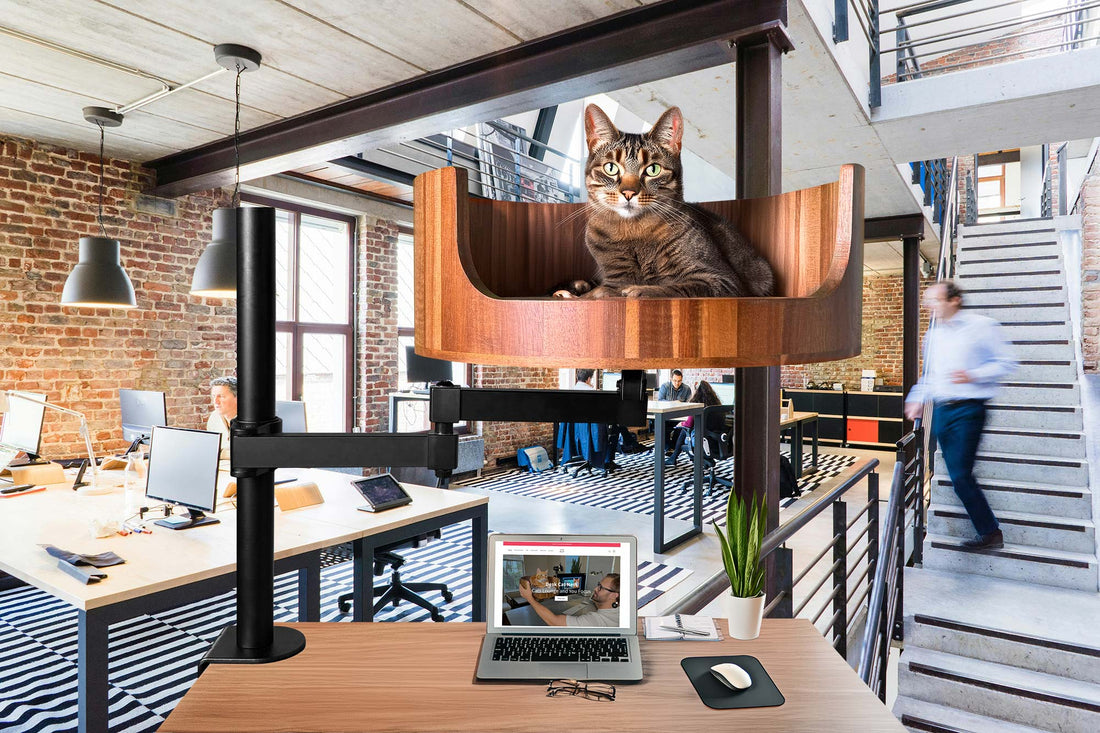
My Cat Can't Poop: Understanding Feline Constipation
Share
Is your feline friend struggling to poop? Constipation in cats is a common issue that can be both uncomfortable and concerning for pet owners. Understanding the causes, symptoms, and treatment options for feline constipation is essential for maintaining your cat's overall health and well-being.
In this article, we will delve into the topic of feline constipation and explore why some cats may have difficulty passing stool. From dietary factors to underlying health conditions, there are various reasons why a cat may experience constipation. We will also discuss common symptoms to look out for, such as straining in the litter box, decreased appetite, and lethargy. Additionally, we will provide insights on how to help your cat alleviate constipation through proper hydration, dietary changes, and veterinary interventions. Stay tuned to learn more about how to ensure your cat's digestive system stays healthy and regular.
1. Feline constipation is a common problem that can be caused by factors such as dehydration, diet, or medical conditions.
2. Symptoms of constipation in cats include straining in the litter box, small or hard stools, and decreased appetite.
3. Treatment options for feline constipation include dietary changes, increased water intake, and medications prescribed by a veterinarian.
4. Regular vet check-ups and monitoring your cat's litter box habits can help prevent and detect constipation early.
5. Seeking prompt veterinary care is crucial if you notice signs of constipation in your cat to avoid potential complications.
## Causes of Feline Constipation
There are several factors that can contribute to a cat experiencing constipation. One common cause is inadequate water intake, which can lead to dry, hard stools that are difficult for the cat to pass. Another potential cause is a lack of dietary fiber, which is important for maintaining regular bowel movements. Additionally, certain medical conditions such as kidney disease, hyperthyroidism, or neurological issues can also result in constipation in cats. It's important to identify the underlying cause of your cat's constipation in order to provide the appropriate treatment.
## Symptoms of Feline Constipation
If your cat is constipated, you may notice a number of symptoms that indicate an issue with their bowel movements. These can include straining to poop, small or hard stools, vocalizations of pain or discomfort during defecation, decreased appetite, lethargy, and vomiting. In severe cases, constipation can lead to more serious complications such as megacolon, a condition in which the colon becomes enlarged and loses its ability to contract effectively. If you suspect that your cat is constipated, it's important to seek veterinary care promptly.
## Treatment Options for Feline Constipation
Treatment for feline constipation will depend on the underlying cause of the issue. In cases where dehydration is a contributing factor, increasing your cat's water intake or providing wet food can help alleviate the problem. Adding fiber to your cat's diet in the form of psyllium or canned pumpkin can also help promote regular bowel movements. In more severe cases, your veterinarian may recommend enemas or laxatives to help your cat pass stool more easily. In cases of chronic constipation, your vet may advise a long-term treatment plan to help manage the issue effectively.
Frequently Asked Questions
Can Desk Cat Nest help with my cat's constipation?
While Desk Cat Nest is designed to provide a comfortable and secure space for your cat to relax, play, and nap, it is not specifically designed to address constipation issues. It is always recommended to consult with a veterinarian for any medical concerns regarding your cat's digestive health.
Is Desk Cat Nest suitable for elderly cats who have trouble using the litter box?
Desk Cat Nest can be a cozy spot for your elderly cat to rest, but if your cat is experiencing difficulties using the litter box, it is important to discuss these issues with your vet to determine the cause and appropriate solutions for your specific situation.
Will Desk Cat Nest help to encourage my cat to poop more regularly?
While a comfortable and stress-free environment can contribute to your cat's overall well-being, it is not guaranteed that Desk Cat Nest will directly impact your cat's bathroom habits. Consulting with a veterinarian is recommended to address any concerns about your cat's pooping frequency.
Can Desk Cat Nest be used as a solution for chronic constipation in cats?
Desk Cat Nest is not a medical solution for chronic constipation in cats. It is important to seek advice from a veterinarian to properly diagnose and treat any chronic health issues your cat may be experiencing.
Is Desk Cat Nest easy to clean in case of accidents?
Desk Cat Nest is designed for easy cleaning. Simply remove the cushion and outer covering for machine washing or hand washing as needed. Regular maintenance will help keep Desk Cat Nest clean and comfortable for your feline friend.
In conclusion, the Desk Cat Bed is a valuable choice for cat owners whose cats are experiencing difficulty with bowel movements. The elevated design of the bed helps promote proper posture and digestion, aiding in healthy bowel movements for your furry friend. Additionally, the soft and comfortable material of the bed provides a cozy spot for your cat to relax and relieve any stress or discomfort that may be contributing to their constipation. Investing in a Desk Cat Bed is not only a practical choice for addressing your cat's bowel issues, but also a comfortable and stylish addition to your home.



















































